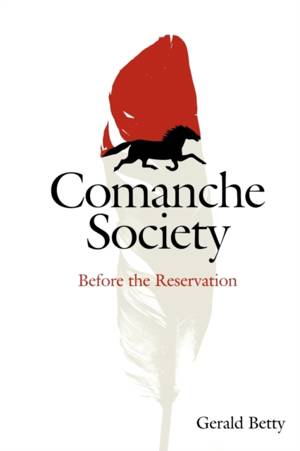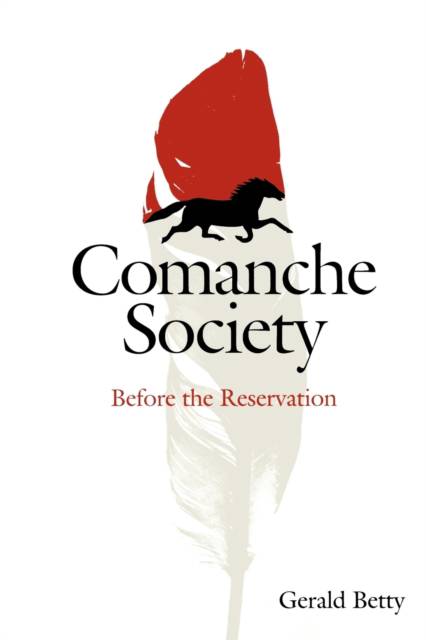
- Retrait gratuit dans votre magasin Club
- 7.000.000 titres dans notre catalogue
- Payer en toute sécurité
- Toujours un magasin près de chez vous
- Retrait gratuit dans votre magasin Club
- 7.000.000 titres dans notre catalogue
- Payer en toute sécurité
- Toujours un magasin près de chez vous
Description
Once called the Lords of the Plains, the Comanches were long portrayed as loose bands of marauding raiders who capitalized on the Spanish introduction of horses to raise their people out of primitive poverty through bison hunting and fierce warfare. More recent studies of the Comanches have focused on adaptation and persistence in Comanche lifestyles and on Comanche political organization and language-based alliances. In Comanche Society: Before the Reservation, Gerald Betty develops an exciting and sophisticated perspective on the driving force of Comanche life: kinship. Betty details the kinship patterns that underlay all social organization and social behavior among the Comanches and uses the insights gained to explain the way Comanches lived and the way they interacted with the Europeans who recorded their encounters. Rather than a narrative history of the Comanches, this account presents analyses of the formation of clans and the way they functioned across wide areas to produce cooperation and alliances; of hierarchy based in family and generational relationships; and of ancestor worship and related religious ceremonies as the basis for social solidarity. The author then considers a number of aspects of Comanche life--pastoralism, migration and nomadism, economics and trade, warfare and violence--and how these developed along kinship lines. In considering how and why Comanches adopted the Spanish horse pastoralism, Betty demonstrates clearly that pastoralism was an expression of indigenous culture, not the cause of it. He describes in detail the Comanche horse culture as it was observed by the Spaniards and the Indian adaptation of Iberian practices. In this context, he looks at the kinship basis of inheritance practices, which, he argues, undergirded private ownership of livestock. Drawing on obscure details buried in Spanish accounts of their time in the lands that became known as Comanchería, Betty provides an interpretive gaze into the culture of eighteenth- and nineteenth-century Comanches that offers new organizing principles for the information that had been gathered previously. This is cutting-edge history, drawing not only on original research in extensive primary documents but also on theoretical perspectives from other disciplines.
Spécifications
Parties prenantes
- Auteur(s) :
- Editeur:
Contenu
- Nombre de pages :
- 252
- Langue:
- Anglais
- Collection :
Caractéristiques
- EAN:
- 9781585444915
- Date de parution :
- 16-06-05
- Format:
- Livre broché
- Format numérique:
- Trade paperback (VS)
- Dimensions :
- 161 mm x 237 mm
- Poids :
- 399 g







